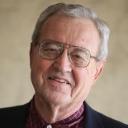As part of my attempt to embrace the complexity of Albert Einstein, I’m exploring a chapter in Lewis Pyenson’s book The Young Einstein: The Advent of Relativity. Pyenson begins by enumerating the failures Einstein overcame prior to being awarded the most prestigious physics chair in the world. He failed to complete his degree at the Luitpold Gymnasium in Munich–the equivalent of a high school diploma. He failed to pass the entrance exam at the Zurich Polytechnic at age 16. Upon eventually graduating from the Polytechnic, he failed to be hired for a graduate assistantship–the usual course for the school’s graduates. He failed to obtain a teaching post in Switzerland. His first doctoral thesis was refused. His first marriage was a failure as was his attempt to win others to pacifism in World War I. Little came from his diplomacy in the 1920’s and when he moved to the United States, he was unable to make any lasting impact in his field. His quest for a unifed field theory was never realized.
Pyenson suggests that Einstein was able to tolerate these failures and persevere because at every turn, they were the consequence of his own choices, choices made by one whom Pyenson says was not exactly the bohemian he claimed to be, nor the rebel his secretary, Helen Dukas, designated him, because Einstein was bound by traditional fundamentals in both his personal and scientific life. For example, due to the opposition of his mother, Einstein was unable to marry his Serbian sweetheart until his father summoned him to his deathbed and gave permission. In the text Albert co-authored with Leopold Infeld, The Evolution of Physics, he resists any description of physics that is not orderly and cumulative. When acausality in quantum mechanics was the fashion, Einstein cited a high authority and built on traditional principles of causality.
Rather, Pyenson suggests, Einstein was a stranger in the sense originally described by Jewish German sociologist Georg Simmel. A stranger, according to Simmel, is one “who lives in a culture but finds himself, by virtue of his previous experience, spiritually or temperamentally removed from it. The stranger’s internal values keep him apart from other people. He is remote, even in his most intimate relationships. . . . because of separate status, the stranger brings abstractness and generality to his perceptions and judgments. . . . He surveys the world from a privileged vantage point.” (Pyenson, 61-62)
Genius aside, there are obviously things about Einstein I relate to–or I wouldn’t be writing about him–and one is this insistence on order and causality in my conception of the universe and a leaning on traditional principles in my decision making. And, without taking anything away from the difficulties of minorities who live in a second culture, I wonder if writers in general don’t understand what it is to be a stranger. That’s hard to say, of course, being stuck in my own point of view, but I often feel a sense of being outside the mainstream, perceptually.
As I’m writing this, I’m reminded of a quote by Dallas Willard I recently wrote down , because, like most writers, I learn what I’m thinking by writing about it. It’s one way the work gives back to the author. The quote is this: “The sense of having some degree of control over things is now recognized as a vital factor in mental and physical health and can make the difference between life and death in those who are seriously ill. . . . having a place of rule goes to the very heart of who we are, of our integrity, strength, and competence.”
This seems to be an answer to how I might deal with a recent situation of failure that I’ve found emotionally debilitating. I need to do something to restore a sense of control over my process.
How do you deal with failure?



